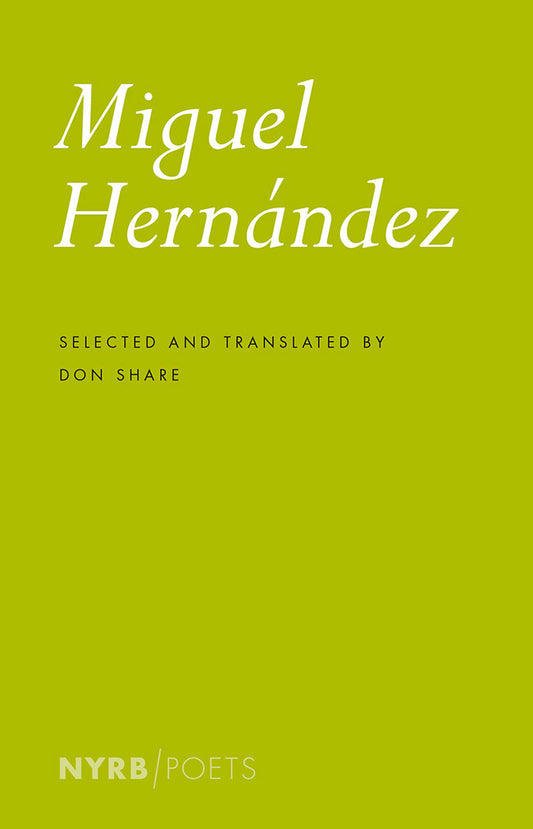Collection:
Miguel Hernández
Miguel Hernández Gilabert (1910–1942) was born into a poor family in the city of Orihuela in southern Spain. His father raised goats and sheep, and Hernández was brought up to be a shepherd. At age eleven, he entered the Jesuit Colegio de Santo Domingo, where he learned to read and write, and started to compose poems whose uncanny virtuosity and wild inspiration earned the admiration of Pablo Neruda and Federico García Lorca. With the outbreak of the Spanish Civil War in 1936, his poetry took on a new public dimension, and Hernández would soon enlist in the Republican Army. In 1937, he married Josefina Manresa Marhuenda, the love of his life. The couple lost their first son to malnutrition; a second, Manuel Miguel, was born in 1939. After the defeat of the Republic, Hernández was condemned to death for his poetry by Francisco Franco, who called him “an extremely dangerous man,” a sentence that was subsequently reduced lest he become a martyr like Lorca. Hernández, imprisoned under brutal conditions and suffering from an advanced case of tuberculosis, continued to write until his death on March 28, 1942; he was thirty-one years old.





